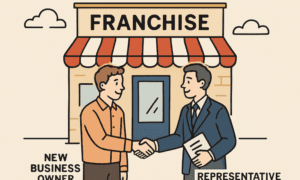Welcome to the world of hotel ownership! Whether you’re a seasoned investor or just dipping your toes into the hospitality industry, understanding the various ownership models is crucial for success. With an array of options like franchises, chains, and independent properties at your disposal, it’s easy to get lost in a sea of information. But fear not! In this blog post, we’ll demystify these different hotel ownership models, unraveling their pros and cons so that you can navigate through this exciting journey with confidence. Get ready to discover which path suits your vision best as we unlock the secrets behind each model and help you make informed decisions for your future establishment.
Introduction to hotel ownership models
When it comes to owning a hotel, there are several different models that one can choose from. These models determine the level of control and support the owner has over their property, as well as the branding and operational standards they must adhere to. In this section, we will explore the three main types of hotel ownership models: franchises, chains, and independent properties.
1. Franchises: what they are and how they work
Franchises are a popular model for hotel ownership, offering both established brand recognition and a proven business model. In this section, we will explore exactly what franchises are and how they work within the hotel industry.
What is a Franchise?
A franchise is essentially a type of licensing agreement between two parties: the franchisor (the parent company) and the franchisee (the owner of the individual hotel). The franchisor grants the franchisee the right to use its brand name, logos, products, and services in exchange for an initial fee and ongoing royalties.
How do franchises work in hotels?
When it comes to hotels, there are two types of franchises: full-service and limited-service. Full-service franchises typically include all amenities, such as restaurants, bars, room service, etc., while limited-service franchises offer more basic amenities and services. The franchisee is responsible for running the day-to-day operations of the hotel while following the guidelines set by the franchisor.
Benefits of Owning a Franchise Hotel
Owning a franchise hotel can be an attractive option for individuals looking to enter the hospitality industry. It combines the benefits of entrepreneurship with the support and resources of an established brand. In this section, we will discuss some of the key advantages of owning a franchise hotel.
1. Established Brand Recognition:
One of the biggest benefits of owning a franchise hotel is that it comes with an already established brand name, logo, and reputation in the market. This can save owners from having to invest significant time and resources in building brand awareness and gaining customer trust. As a result, franchises often have higher occupancy rates and revenue compared to independent properties.
2. Training and Support:
Franchise hotels offer extensive training programs for owners and their staff, covering everything from operations to marketing strategies. This allows new owners to benefit from the expertise and experience of the franchisor, which can be especially helpful for first-time hoteliers or those transitioning from other industries.
Additionally, franchisors provide ongoing support in areas such as sales, revenue management, technology upgrades, and quality assurance. This can be particularly valuable for independent property owners who may not have access to these resources on their own.
3. Marketing Power:
Being part of a well-known franchise means that your hotel automatically gains exposure through nationwide advertising campaigns run by the parent company. Franchisors also leverage their strong online presence through booking platforms like Expedia or Booking.com to drive bookings for their properties.
Drawbacks of Owning a Franchise Hotel
Franchising is a popular method for hotel ownership, providing owners with the opportunity to tap into the brand recognition and resources of an established hotel company. However, like any business model, there are drawbacks that come with owning a franchise hotel. In this section, we will explore some of the potential challenges and limitations that owners may face when choosing to invest in a franchise.
1. Initial investment and ongoing fees:
One of the biggest drawbacks of owning a franchise hotel is the initial investment required. Franchise fees can be quite substantial, consisting of a one-time fee for joining the brand as well as ongoing royalties based on a percentage of revenue or profits. These fees can significantly impact an owner’s bottom line and limit their ability to make independent decisions about their property.
2. Lack of control over branding and operations:
While franchising provides access to an established brand, it also means adhering to strict standards and guidelines set by the franchisor. This can limit an owner’s creativity and control over branding, marketing strategies, and day-to-day operations. Any changes or improvements must be approved by the franchisor, which can slow down decision-making processes.
3. Limited flexibility in pricing:
Franchise agreements often outline specific pricing structures that must be followed, limiting an owner’s ability to adjust rates according to market demand or competitor prices. This lack of flexibility can put franchise hotels at a disadvantage during slow periods or in highly competitive markets.
2. Chains: understanding the concept and structure
Chains are a common term in the hospitality industry, but their concept and structure can often be confusing for those outside of the business. In this section, we will delve into a detailed understanding of chains, including their key features, different types, and how they operate.
What is a chain?
Simply put, a chain is an organization that operates multiple properties under the same brand name. These properties may be located in different regions or countries, but they share the same branding and standards set by the parent company. Chains typically have a centralized management system that oversees all properties and ensures consistency in operations and guest experience.
Advantages of being part of a chain hotel
Being part of a chain hotel offers numerous advantages for both the hotel owner and the guests. In this section, we will explore the various benefits that come with being part of a chain hotel.
1. Brand Recognition and Credibility:
One of the biggest advantages of being part of a chain hotel is brand recognition. Established chains have invested years in building their reputation and brand image, making them instantly recognizable to potential guests. This credibility helps attract more customers and can result in increased bookings for franchisees or owners of chain hotels.
2. Marketing Support:
Chain hotels often have dedicated marketing teams that work to promote their brands and properties. As a franchisee or owner, you benefit from this support as it saves you time and resources that would otherwise be spent on marketing efforts. The established brand name also means that you do not need to spend as much on advertising as an independent property would.
3. Access to Resources:
Being part of a chain hotel gives you access to various resources, such as training programs, operational manuals, technology platforms, reservation systems, and more. These resources are designed to help improve the efficiency and profitability of your property while maintaining consistent standards across all chain locations.
Disadvantages of Owning a Chain Hotel
Owning a chain hotel may seem like the perfect business model for many aspiring hotel owners. After all, you get to benefit from the well-established brand name, marketing efforts, and operational support of a larger franchise or chain. However, as with any business model, there are also potential disadvantages that should be considered before making such a significant investment.
1. Limited Flexibility and Control
One of the biggest disadvantages of owning a chain hotel is the limited flexibility and control over your property’s operations. As part of a larger chain, you must adhere to their standardized procedures, rules, and regulations. This can limit your ability to make decisions based on your individual property’s needs and unique market demands.
For example, if the corporate office decides to change its branding image or target audience, you will have no choice but to comply with these changes. These limitations may restrict your creativity and innovation in operating your property.
2. High Initial Investment and Ongoing Fees
Another significant disadvantage of owning a chain hotel is the high initial investment required to enter into an agreement with a franchise or chain brand. In addition to paying for the right to use their brand name and logo, there are also ongoing fees associated with being part of a larger chain.
These fees include royalties based on revenue or profits earned by the property, marketing fees for national advertising campaigns, and reservation fees for using their central reservation system (CRS), among others. These costs can significantly impact your bottom line and eat into your profits.
3. Independent properties: the ins and outs of operating one
Operating an independent property can be a rewarding and exciting venture for hotel owners. Unlike franchises or chains, independent properties offer more flexibility and creativity in terms of branding, marketing, and operations. However, with independence comes a unique set of challenges and considerations that owners must navigate to ensure success.
Pros of owning an independent hotel
Owning an independent hotel comes with its own unique set of benefits that cannot be matched by other ownership models, such as franchises or chains. While these models offer certain advantages, here are some key pros to owning an independent hotel:
1. Flexibility and Creativity: One of the biggest advantages of owning an independent hotel is the freedom to make your own decisions and be creative with your business. Unlike franchises or chains, where owners have to abide by strict brand guidelines and standards, independent hotel owners have the freedom to customize their property according to their vision and target market. This allows for a more personal touch and can help differentiate your hotel from others in the industry.
2. Control Over Operations: With independence comes full control over operations, including staffing, marketing strategies, pricing, and the guest experience. This level of control gives independent hotel owners the flexibility to make quick changes based on market demand or feedback from guests without having to go through corporate approval processes.
3. Greater Profit Margins: Owning an independent hotel means you don’t have to pay franchise fees or adhere to brand-mandated purchasing agreements. This translates into higher profit margins for the property owner as they can negotiate deals directly with suppliers rather than being tied down by franchise agreements.
Cons of running an independent
While running an independent hotel may seem like a dream for many hoteliers, it is important to also consider the potential downsides of this ownership model. In this section, we will discuss some of the cons of running an independent hotel.
1. Lack of brand recognition and marketing support: One of the biggest challenges for independent hotels is establishing a strong brand identity and gaining visibility in a highly competitive market. Unlike franchise or chain hotels, independents do not have the backing of a well-known brand name or marketing resources provided by a parent company. This can make it difficult to attract guests and drive bookings, especially for new or lesser-known properties.
2. Limited resources and budget constraints: Operating an independent hotel means being solely responsible for all aspects of the business, from managing operations to maintaining the property. This can be overwhelming for small, independent owners who may not have access to the same level of resources and financial backing as larger chains or franchises. As a result, it may be challenging to invest in necessary upgrades or renovations that could improve the guest experience and ultimately drive revenue.
3. Higher risk and uncertainty: While being your own boss may sound appealing, it also comes with its own set of risks and uncertainties. Independent hotels are more vulnerable to economic downturns and changes in consumer preferences compared to branded properties that benefit from established customer loyalty. Without the support system provided by franchises or chains, owners must bear sole responsibility for navigating through tough times.
Conclusion
Hotel management and ownership can take many forms, each with its own benefits and drawbacks. Franchising offers the advantage of brand recognition and support from a larger corporation, but at the cost of less control over business decisions. Chains provide a balance between brand recognition and autonomy, with some decision-making power given to individual owners. Independent properties allow for complete control over business decisions but may lack the resources and support of a larger brand.



































